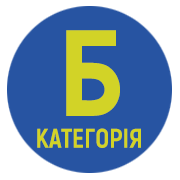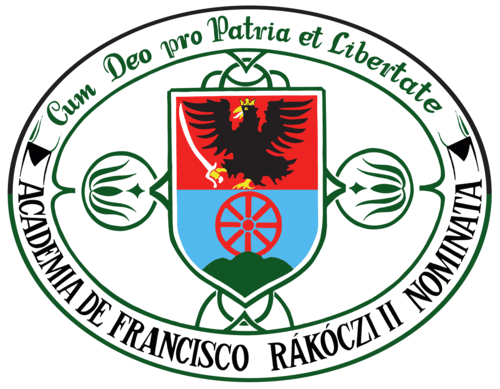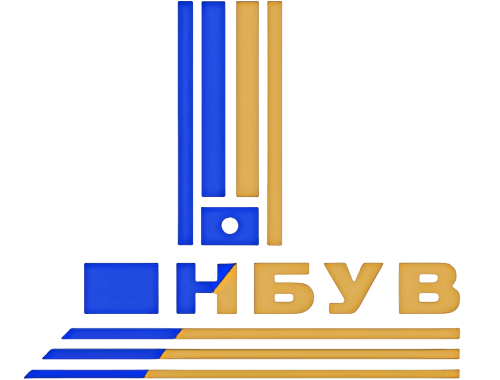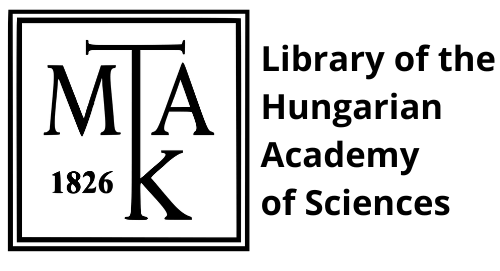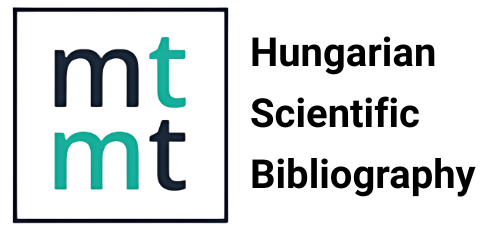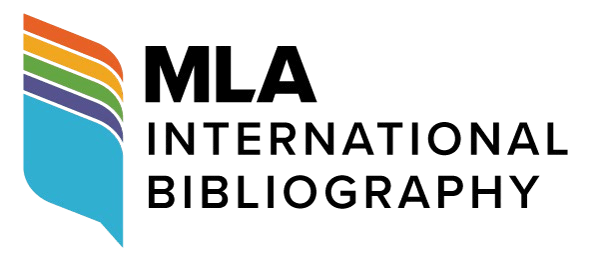Discursive features of using the terminology of generative artificial intelligence in professional communication: analysis of trends and prospects
DOI:
https://doi.org/10.58423/2786-6726/2025-3-140-157Keywords:
terminology, generative artificial intelligence, analysis, unification, standardisation, terminology derivation, professional communicationAbstract
The relevance of the study is driven by the unprecedented pace of scientific and technological progress and the widespread implementation of generative artificial intelligence (GAI). The dynamic emergence of new GAI-related concepts necessitates a systematic linguistic interpretation and the normalisation of terminology to ensure effective professional communication. The aim of the article is to conduct an in-depth investigation of the discursive features of GAI terminology usage in professional discourse, analyse the cognitive aspects of its perception and categorisation, and identify trends in the influence of GAI on the formation of new vocabulary in contemporary Ukrainian. The novelty of the research lies in the comprehensive analysis of the dynamics of GAI terminological system development within the context of Ukrainian professional communication, as well as in the identification of specific cognitive mechanisms and discursive practices related to the functioning of terms. The study is grounded in modern methodological approaches, including descriptive, functional, cognitive, and disciplinary analyses. In order to determine the role of metaphors and mechanisms of term formation, discursive, conceptual, cognitive, and word-formation analyses were applied. By analysing contemporary terminological research conducted by Ukrainian and international scholars, the authors identified the primary mechanisms of GAI terminology formation in the Ukrainian language, including borrowing, calquing, and native word formation. The impact of these processes on the development of the GAI terminological system was examined in detail, enabling the identification of their specific features and challenges. The study outlines concrete pathways for term creation and confirms the urgent need for the unification and standardisation of terminology in this area. The authors conclude that the terminological system of generative artificial intelligence is highly dynamic. It is emphasised that GAI professional discourse is characterised by high precision, objectivity, linguistic economy, and intertextuality. Phenomena of prototypicality and conceptual metaphor were identified, which facilitate understanding but require precise scientific definition. The prospects for further research include the pressing need for the unification and standardisation of GAI terminology, as well as the development of official glossaries, terminological databases, and standards aimed at improving the quality of professional communication.
References
1. Bahan, Myroslava 2015. Novi tendentsii u formuvanni suchasnoi syntaksychnoi terminolohii [New trends in the formation of modern syntactic terminology]. Naukovyi visnyk kafedry Yunesko Kyivskoho natsionalnoho linhvistychnoho universytetu. Seriia Filolohiia. Pedahohika. Psykholohiia 31: s. 9–13. (In Ukrainian)
2. Bahan, Myroslava 2019. Spivvidnoshennia syntetyzmu y analityzmu v suchasnii ukrainskii linhvistychnii terminolohii [The relationship between syntheticism and analyticism in modern Ukrainian linguistic terminology]. Visnyk Kyivskoho natsionalnoho linhvistychnoho universytetu. Seriia Filolohiia 22/1: s. 100–108. (In Ukrainian)
3. Vakulenko, Maksym 2010. Problemy suchasnoi standartyzatsii ukrainskoi latynytsi [Problems of modern standardisation of the Ukrainian Latin alphabet]. Mova i kultura 13: s. 284–292. (In Ukrainian)
4. Velyka, Olha 2009. Problema synonimii v anhliiskii marketynhovii terminolohii ta pereklad terminiv-synonimiv ukrainskoiu movoiu [The problem of synonymy in English marketing terminology and the translation of synonymous terms into Ukrainian]. Studia Linguistica 2: s. 91–96. (In Ukrainian)
5. Volkova, Iryna 2002. Leksyko-semantychna kharakterystyka suchasnoi ukrainskoi fizychnoi terminolohii (na materiali spetsializovanykh vydan 90-kh rr. XX st.): avtoreferat dysertatsii na zdobuttia naukovoho stupenia kandydata filolohichnykh nauk [Lexical and semantic characteristics of modern Ukrainian physical terminology (based on materials from specialised publications of the 1990s): abstract of a dissertation for the degree of Candidate of Philological Sciences]. Kharkiv: Kharkivskyi nats. un-t imeni V. N. Karazina. (In Ukrainian)
6. Holub, Oleksandr 2024. Khimichna naukova terminolohiia ta derzhavni standarty na terminy y oznachennia [Chemical scientific terminology and state standards for terms and definitions]. In: Problemy ukrainskoi terminolohii: zbirnyk naukovykh prats uchasnykiv XVIII naukovo-praktychnoi konferentsii SlovoSvit 2024. Lviv: Vydavnytstvo Lvivskoi politekhniky, s. 74–77. (In Ukrainian)
7. Hordiienko, Olena 2018. Terminolohichna leksykohrafiia u formuvanni hlobalnoho naukovoho prostoru haluzi medytsyny (na materiali anhlomovnykh medychnykh slovnykiv): avtoreferat dysertatsii na zdobuttia naukovoho stupenia doktora filolohichnykh nauk [Terminological lexicography in the formation of the global scientific space of the medical field (based on materials from English medical dictionaries): abstract of a dissertation for the degree of Doctor of Philological Sciences]. Zaporizhzhia: Zaporizkyi natsionalnyi universytet. (In Ukrainian)
8. Zaoborna, Mariia 2024. Termin krapka pid radykalom pytomoho y zapozychenoho v terminolohiinii systemi ukrainskoi punktuatsii [The term dot under the radical of a specific and borrowed word in the terminological system of Ukrainian punctuation]. In: Problemy ukrainskoi terminolohii: zbirnyk naukovykh prats uchasnykiv XVIII naukovo-praktychnoi konferentsii SlovoSvit 2024. Lviv: Vydavnytstvo Lvivskoi politekhniky, s. 120–125. (In Ukrainian)
9. Zubchenko, Volodymyr 2024. Standartyzatsiia terminolohii shtuchnoho intelektu [Standardisation of artificial intelligence terminology]. In: Problemy ukrainskoi terminolohii: zbirnyk naukovykh prats uchasnykiv XVIII naukovo-praktychnoi konferentsii SlovoSvit 2024. Lviv: Vydavnytstvo Lvivskoi politekhniky, s. 78–80. (In Ukrainian)
10. Ivashchenko, Viktoriia 2014. Osnovni napriamy doslidzhen u terminoznavstvi kintsia XX – pochatku XXI st [Main areas of research in terminology of the late XX – early XXI centuries]. Visnyk universytetutu «Lvivska politekhnika» 791: s. 22–26. (In Ukrainian)
11. Kyiak Taras, 1989. Linhvistychni aspekty terminoznavstva [Linguistic aspects of terminology]. Kyiv: UMK VO. (In Ukrainian)
12. Kocherha, Olha 2024. Terminotvorennia ta terminovzhytok: norma i realnist [Term formation and term usage: norm and reality]. In: Problemy ukrainskoi terminolohii: zbirnyk naukovykh prats uchasnykiv XVIII naukovo-praktychnoi konferentsii SlovoSvit 2024. Lviv: Vydavnytstvo Lvivskoi politekhniky, s. 25–29. (In Ukrainian)
13. Kukharchyshyn, Mariia 2021. Semantychna deryvatsiia v ukrainskii biolohichnii terminolohii: avtoreferat dysertatsii na zdobuttia naukovoho stupenia kandydata filolohichnykh nauk [Semantic derivation in Ukrainian biological terminology: abstract of dissertation for obtaining a scientific degree of Candidate of Philological Sciences]. Lviv: Lvivskyi natsionalnyi universytet imeni Ivana Franka. (In Ukrainian)
14. Mentynska, Iryna 2024. Ukrainska kompiuterna terminolohiia: formuvannia, systemna orhanizatsiia, vektory rozvytku: avtoreferat dysertatsii na zdobuttia naukovoho stupenia doktora filosofii [Ukrainian computer terminology: formation, system organisation, development vectors: abstract of a dissertation for the award of a scientific degree of Doctor of Philosophy]. Lviv: Natsionalnyi universytet «Lvivska politekhnika». (In Ukrainian)
15. Oliinyk, Nataliia 2024. Harmonizatsiia terminiv natsionalnykh standartiv: vyklyky ta perspektyvy [Harmonisation of national standard terms: challenges and prospects]. In: Problemy ukrainskoi terminolohii: zbirnyk naukovykh prats uchasnykiv XVIII naukovo-praktychnoi konferentsii SlovoSvit 2024. Lviv: Vydavnytstvo Lvivskoi politekhniky, s. 43–47. (In Ukrainian)
16. Panko, Tamila – Kochan, Iryna – Matsiuk, Halyna 1994. Ukrainske terminoznavstvo [Ukrainian terminology]. Lviv: Svit. (In Ukrainian)
17. Petrova, Tetiana 2024. Ukrainska terminohrafichna krytyka: istoriia, teoriia, praktyka: avtoreferat dysertatsii na zdobuttia naukovoho stupenia doktora filolohichnykh nauk [Ukrainian terminographic criticism: history, theory, practice: abstract of the dissertation for the degree of Doctor of Philological Sciences]. Vinnytsia: Donetskyi natsionalnyi universytet imeni Vasylia Stusa. (In Ukrainian)
18. Radomska, Liudmyla 2016. Semantychni vidnoshennia v terminolohichnykh imennykakh-yukstapozytakh: avtoreferat dysertatsii na zdobuttia naukovoho stupenia kandydata filolohichnykh nauk [Semantic relations in terminological nouns-juxtaposites: abstract of the dissertation for the degree of Candidate of Philological Sciences]. Vinnytsia: Donetskyi natsionalnyi universytet imeni Vasylia Stusa. (In Ukrainian)
19. Slipetska, Vira 2008. Anhlomovna terminolohiia shtuchnoho intelektu u konteksti inshykh terminosystem (dosvid linhvostatystychnoho analizu): avtoreferat dysertatsii na zdobuttia naukovoho stupenia kandydata filolohichnykh nauk [English-language terminology of artificial intelligence in the context of other terminological systems (experience of linguostatistical analysis): abstract of the dissertation for the degree of Candidate of Philological Sciences]. Kyiv: Kyivskyi natsionalnyi linhvistychnyi universytet. (In Ukrainian)
20. Tur, Oksana 2008a. Ukrainska terminolohiia zemleustroiu ta kadastru: avtoreferat dysertatsii na zdobuttia naukovoho stupenia kandydata filolohichnykh nauk [Ukrainian terminology of land management and cadastre: abstract of the dissertation for the degree of Candidate of Philological Sciences]. Kyiv: Instytut ukrainskoi movy NAN Ukrainy. (In Ukrainian)
21. Tur, Oksana 2008b. Polova struktura cuchasnoi ukrainskoi terminosystemy zemleustroiu ta kadastru [The field structure of the modern Ukrainian term system of land management and cadastre]. Naukovi pratsi. Seriia: Filolohiia 92: s. 68–72. (In Ukrainian)
22. Tur, Oksana 2017. Unifikatsiia dokumentoznavchoi terminolohii: pryntsypy ta funktsii [Unification of document science terminology: principles and functions]. Bibliotekoznavstvo. Dokumentoznavstvo. Informolohiia 1: s. 37–41. (In Ukrainian)
23. Tur, Oksana – Shabunina, Viktoriia 2023. Metodolohichnyi instrumentarii suchasnykh terminolohichnykh doslidzhen [Methodological means for modern terminological studies]. Zakarpatski filolohichni studii 28/2: s. 42-47. https://doi.org/10.32782/tps2663-4880/2023.28.2.7 (In Ukrainian)
24. Tur, Oksana – Shabunina, Viktoriia 2024. Ukrainska vuzkospetsialna terminolohiia yak istorychno sformovana systema terminiv (XI ̶ pochatok XX stolittia) [Ukrainian highly specialised terminology as a historically formed system of terms (XI – early XX century)]. In: Modern science prospects, innovations and technologies: Scientific monograph. Part 2. Riga: Baltija Publishing, s. 219–249. (In Ukrainian)
25. Tur, Oksana – Shabunina, Viktoriia 2025. Tendentsii, vyklyky ta perspektyvy epokhy shtuchnoho intelektu [Trends, challenges and prospects of the era of artificial intelligence]. In: Kultura, informatsiia, komunikatsiia: mizhdystsyplinarnyi dialoh: materialy Vseukr. nauk. konf. z mizhn. uchastiu (Kyiv, 10 kvitnia 2025 r.). Kyiv: NAKKKiM, s. 20–23. (In Ukrainian)
26. Udovichenko, Liliia 2024. Politsiina terminolohiia: stanovlennia, struktura, funktsiiuvannia: avtoreferat dysertatsii na zdobuttia naukovoho stupenia doktora filosofii [Police terminology: formation, structure, functioning: abstract of the dissertation for the degree of Doctor of Philosophy]. Kharkiv: Kharkivskyi natsionalnyi pedahohichnyi universytet imeni H. S. Skovorody. (In Ukrainian)
27. Kharchuk, Liliia 2017. Formuvannia ta systemna orhanizatsiia ukrainskoi elektroenerhetychnoi terminosystemy: avtoreferat dysertatsii na zdobuttia naukovoho stupenia kandydata filolohichnykh nauk [Formation and systemic organisation of the Ukrainian electric power term system: abstract of the dissertation for the degree of Candidate of Philological Sciences]. Lviv: Lvivskyi natsionalnyi universytet imeni Ivana Franka. (In Ukrainian)
28. Shablii, Olena 2002. Mizhmovna terminolohichna omonimiia yak problema terminohrafii i perekladu (na materiali nimetskoi ta ukrainskoi yurydychnykh terminosystem): avtoreferat dysertatsii na zdobuttia naukovoho stupenia kandydata filolohichnykh nauk [Interlingual terminological homonymy as a problem of terminology and translation (based on the material of German and Ukrainian legal terminological systems): abstract of the dissertation for the degree of Candidate of Philological Sciences]. Kyiv: Kyivskyi natsionalnyi universytet imeni Tarasa Shevchenka. (In Ukrainian)
29. Boulanger, Jean-Claude 1981. Une lecture socio-culturelle de la terminologie [A socio-cultural lecture of terminology]. Cahiers de linguistique sociale 8: pp. 13–30. (In French)
30. Cabré Castellví, Maria 2003. Theories of terminology: their description, prescription and explanation. Terminology 9/2: pp. 163–199. https://doi.org/10.1075/term.9.2.03cab
31. Drouin, Patrik – Francoeur, Aline – Humbley, John – Picton, Aurelie eds. 2017. Multiple Perspectives on Terminological Variation. Amsterdam: John Benjamins. https://doi.org/10.1075/tlrp.18
32. Faber, Pamela 2009. The Cognitive Shift in Terminology and Specialized Translation. MonTI: Monografías de Traducción e Interpretación 1: pp. 107–134. https://doi.org/10.6035/MonTI.2009.1.5
33. Felber, Helmut 2002. Terminology Manual. Paris: UNESCO – Infoterm.
Downloads
Published
How to Cite
Issue
Section
License
Copyright (c) 2025 Oksana Tur, Viktoriia Shabunina, Viktor Sarancha

This work is licensed under a Creative Commons Attribution 4.0 International License.
Authors retain copyright and grant the journal the right of first publication. The work is simultaneously licensed under a Creative Commons Attribution 4.0 International License (CC BY 4.0), which permits others to share the work with appropriate credit given to the author(s) and the initial publication in this journal.

